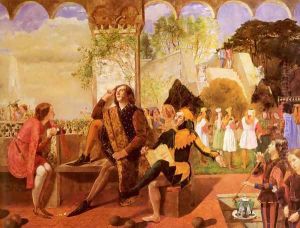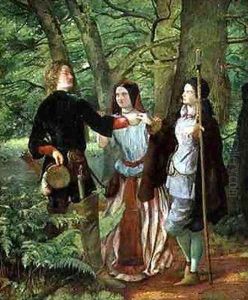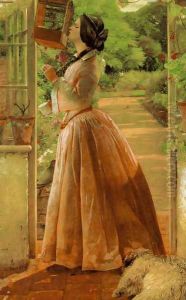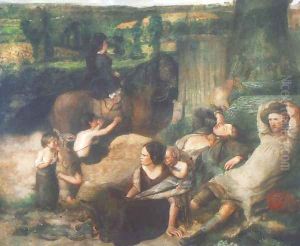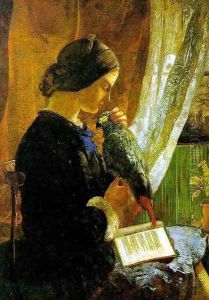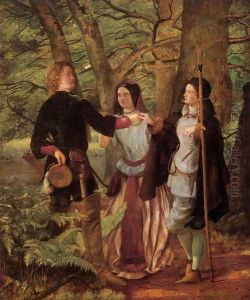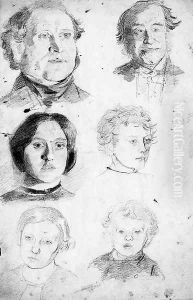Walter Howell Deverell Paintings
Walter Howell Deverell was a 19th-century British artist born in 1827 in the United States, specifically in Charlottesville, Virginia. He was associated with the early phase of the Pre-Raphaelite Brotherhood, a group of English painters, poets, and art critics founded in 1848. The Brotherhood aimed to reform art by rejecting what it considered the mechanistic approach first adopted by Mannerist artists who succeeded Raphael and Michelangelo. They believed in a return to the abundant detail, intense colors, and complex compositions of Quattrocento Italian and Flemish art.
Deverell moved to England with his family when he was a child. His father was a professional musician, which provided the young Deverell with a cultured upbringing. He attended Sass's Art School, where he met Dante Gabriel Rossetti, who would become one of the founding members of the Pre-Raphaelite Brotherhood. Rossetti introduced him to other members of the group, and though Deverell was never an official member, he was closely associated with them and their ideals.
Deverell's career was brief due to his untimely death at the age of 26 from Bright's disease, a historical classification of kidney diseases. During his short life, he produced a limited but significant body of work, which included historical and literary subjects rendered with vibrant colors and meticulous attention to detail, trademarks of the Pre-Raphaelite style. One of his most notable works is 'Twelfth Night', illustrating a scene from Shakespeare's play featuring the character Viola.
Sadly, Deverell's potential was never fully realized due to his early death in 1854. Despite his brief career, his contributions to the early Pre-Raphaelite movement were significant, and his works are still appreciated for their beauty and adherence to the principles of the Brotherhood. Deverell's art is characterized by its freshness, color, and detailed portrayal of nature, which have earned it a place in the annals of British art history.
